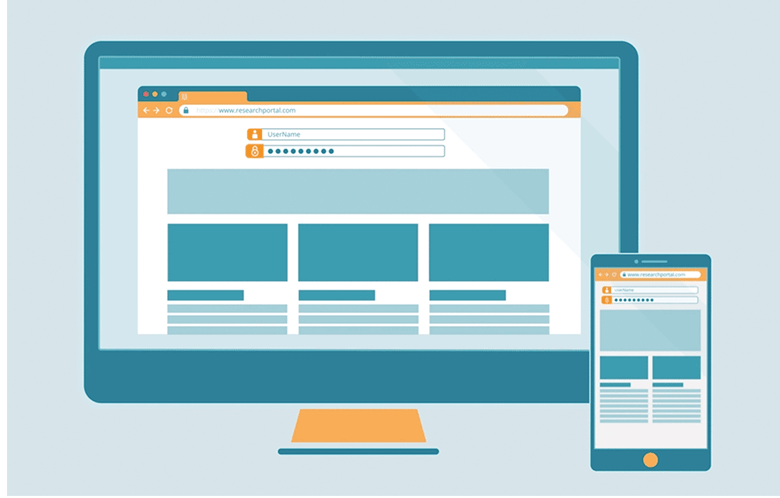The information-seeking habits of today’s employees have been primarily shaped by search engines, even throughout their college years. Some argue that their cognitive thinking skills, verbal ability and educational experience affect the terms or keywords they use in their search queries when conducting research. A lack of these information literacy skills can pose major problems in the workplace. An employee today may not fully understand the different types of information resources and be able to distinguish ‘good’ information from ‘bad’ information. This means there is a significant gap in the information skills an employee needs and what is expected within the workplace.
A survey of recent college graduates by Project Information Literacy of indicates that “as they settled into their 40-plus hour-a-week jobs, graduates said they relied on their computer expertise and leveraged information competencies from their college days for solving information problems. Unfortunately, these competencies only went so far. Employers needed them to use a more comprehensive and varied research approach.” Employers interviewed as part of the survey indicated that a major consideration in selecting one job candidate over the other was based on the amount of resources they used for research.
Your organization is faced with an incredible challenge to teach, build and ensure information literacy in employees. Leveraging the right technology can contribute to improving information literacy skills – without the user even knowing.
Create a Self-Service Research Portal
Researchers want a sophisticated and modern way to access information from a single-point. They want to be able to do this on their own with limited help from a knowledge manager. But the way in which this portal is organized and presented could affect building information literacy skills. Investing in a responsive CMS tool to build a portal and “house” not just content but key integrations to reduce frustration (think integrated SSO, search platform and rss feeds) leads researchers to choose what they need, without having to second guess their path.
In addition, leveraging a flexible portal allows for your organization to create departmental- profiles, helping to better target researchers and present relevant information.
Your organization is faced with an incredible challenge to teach, build and ensure information literacy in employees. Leveraging the right technology can contribute to improving information literacy skills – without the user even knowing.
Your organization is faced with an incredible challenge to teach, build and ensure information literacy in employees. Leveraging the right technology can contribute to improving information literacy skills – without the user even knowing.
Leverage the Right Search Technology
Most employees are accustomed to starting their search (both as a consumer and as a researcher) through a single search box. Over the years, search technology has also expanded to better anticipate users’ needs, and the search technology your organization leverages must match. Utilization of a discovery platform during the research process can contribute to building information literacy skills. The functionality of a discovery platform such as EBSCO Discovery Service™ not only meets the user experience expectations of an employee but also helps to improve their information literacy. Functionality such as subject indexing, relevancy ranking and access to full text helps an employee determine what content is the most relevant to their search.
In addition, specific features of a discovery platform like EDS help to strengthen an employee’s information literacy skills. Examples such as:
Refining search results – filters and limiters
By presenting an “open tray” approach to the most common limiting elements such as Full Text, publication date range, and source type – EDS helps employees to start evaluating criteria within a guided structure.
Anticipating user intent – autocomplete and autocorrect
Feature elements like Did-You-Mean, Autocomplete and Autocorrect offer users’ suggestions and correct users ‘search terms, decreasing false results and errors.
Collecting information ethically – Citation Search
Including proper citations in research is a basic information literacy skill that researchers need to fully understand and build into their research actions. EDS provides the ability for a researcher to search on a citation – allowing the user to move fluidly and find cited works easily. The export citations feature allows users to save or email citations in formats of their choice, so they can easily organize and cite their research sources.
Connecting to subject-specific information – Hyperlinked Databases
Subject-specific databases become more of a focus for intermediate researchers, but efficiently connecting to them through a simple database list may be a challenge. For example, a user may not be aware they have used information provided by CINAHL. This is where a feature like hyperlinked databases comes into play. This feature allows the researcher to become exposed to the availability of specialized databases held by the organization, helps them to start drawing better connections and makes them keenly aware that the library has the right content for their area (more so than the Internet).
Provide Anytime, Anywhere Access
Today, researching is not just limited to a desktop. R&D teams may be onsite or employees are working while commuting, so your research portal and search technology must have the means to be wherever the employee is. Providing a native app experience ensures a consistent experience on a mobile device and supports “continuous proper research” that in turn improves information literacy skills.
Offering the right information resources is the first step to building information literacy skills. Offering a holistic solution that ties a modern research portal UI with search and “access technology” helps build critical information literacy skills to drive your organization forward.
